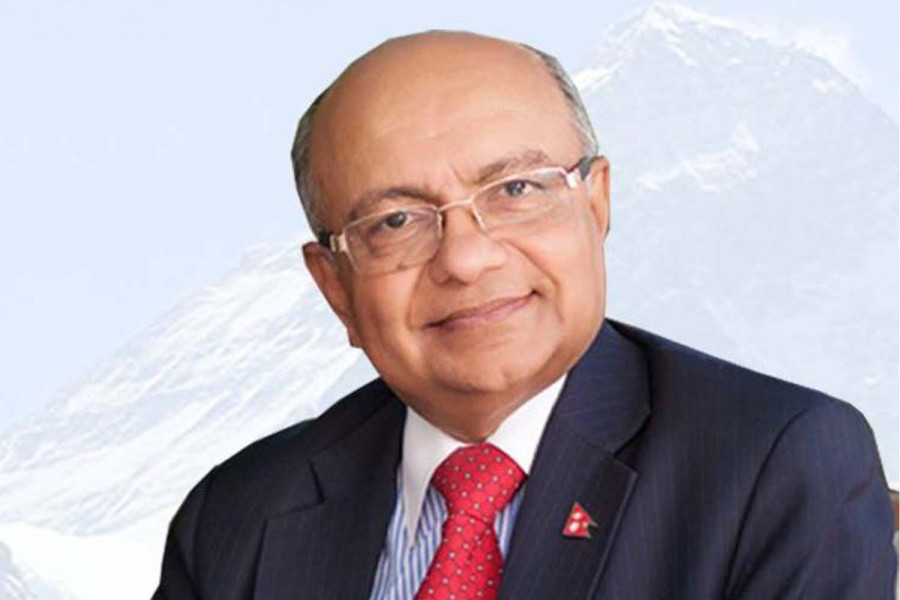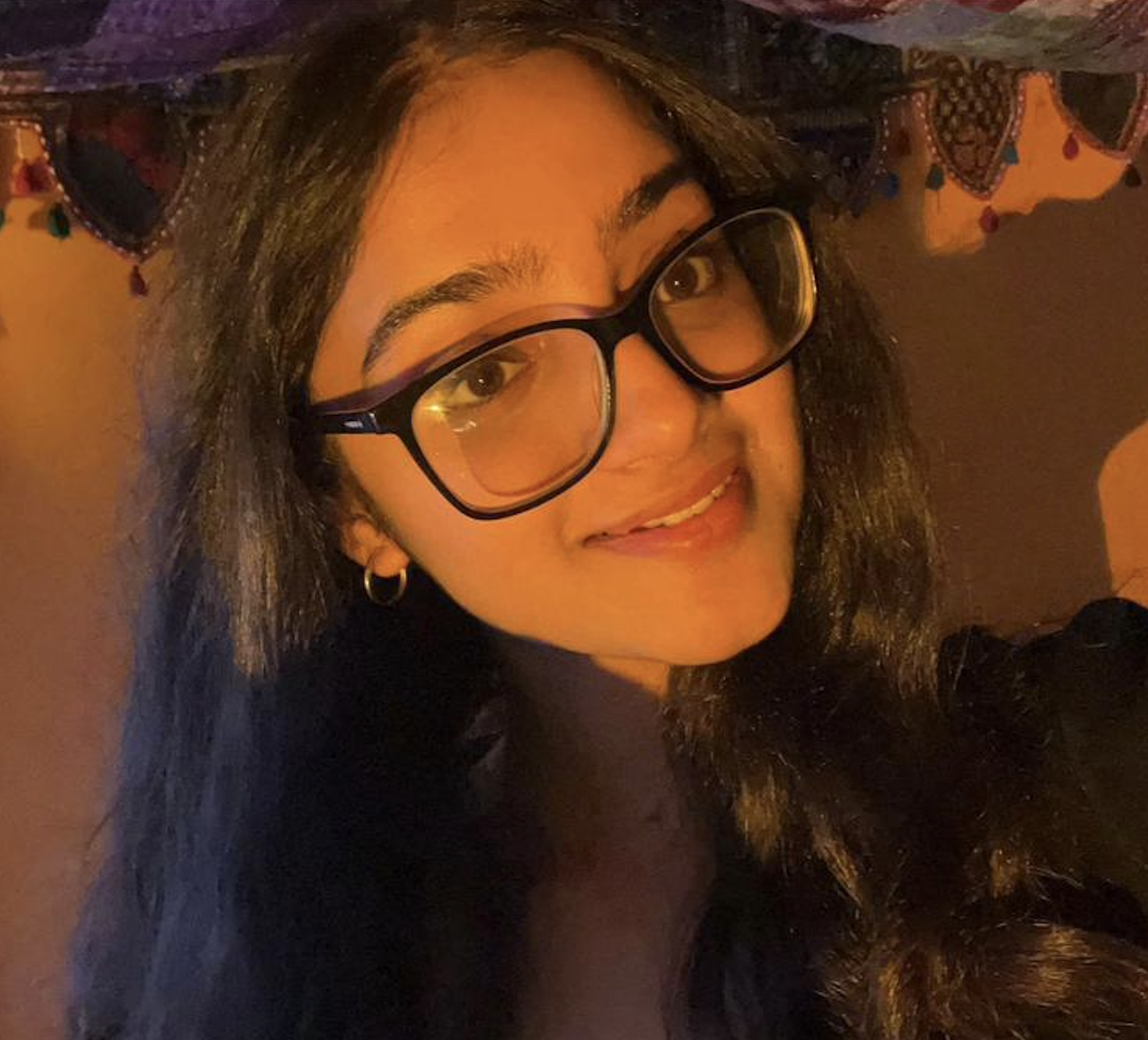Books
How reading shaped this global citizen
Former UN official Kul Chandra Gautam discusses books and diplomacy.
Rishika Dhakal
Kul Chandra Gautam is a former senior official of the United Nations and a development professional. He served as the UN's assistant secretary-general and Deputy Executive Director of UNICEF. He serves on the boards of several international and national organisations, charitable foundations, and public-private partnerships.
In this conversation with the Post’s Rishika Dhakal, Gautam discusses the impact of reading books on his diplomatic career and his self-authored books.
What role did literature play in your career as a diplomat?
I was a bookworm from my early childhood. When I was in middle school at Janata Vidyalaya in Tansen in the early 1960s, I used to spend several hours every day at Palpa’s historic Dhawal Pustakalaya library reading all kinds of Nepali literature and some Nepali literary magazines like Ruprekha and Madhuparka.
I also wrote poems and essays in Nepali that were published in my school’s magazine. I received several awards for my writings and was given a medal as a child poet (baal-kavi) by the then District Commissioner of Palpa in 1964.
During my studies at Kathmandu’s Juddhodaya Public High School and Tri-Chandra College in the mid-1960s, I spent much of my spare time visiting the American, British, Chinese, Indian and Russian libraries every day to read books as well as newspapers and magazines. By the time I finished my intermediate of arts (IA), I had read most of the books written by Laxmi Prasad Devkota, Lekhnath Paudyal, Bal Krishna Sama, Siddhicharan Shrestha, Bhim Nidhi Tiwari, Bijaya Malla ‘Gothale’, Bhupi Sherchan, among others.
During my university days at Dartmouth College and Princeton University in the US, I continued to read books on various subjects ranging from literature, politics, economics and international relations. Among the books I recall reading were those by Chinua Achebe, Gabriel Garcia Marquez, Leo Tolstoy, Marx, Lenin, Milovan Djilas, Edgar Snow, Han Su Yin, Pearl Buck, William Fulbright, John Kenneth Galbraith, Gunnar Myrdal, Dag Hammarskjold, among others.
Reading all these books and my anti-war student activism at Dartmouth in the late 1960s and early 70s got me deeply interested in international relations and the work of the United Nations. That led to my life-long career in international diplomacy and development.
You’ve written three books. What motivated you to write them, and how do they complement each other?
After I retired from the UN and returned to Nepal in 2008, many Nepali friends and my UN colleagues urged me to write about my long experience in international relations and how I had risen from my humble origins in the remote village of Gulmi to a position at UNICEF and the UN.
As I had tried to be helpful in Nepal’s peace process during the Maoist insurgency and following their safe landing in peaceful politics, I was also asked to reflect on my perspectives on Nepal’s contemporary political and development scenarios. I tried to write about these issues in a single volume, but the manuscript became too long.
Therefore, the publishers advised me to split it into two volumes. The first volume was published as ‘Lost in Transition: Rebuilding Nepal from the Maoist Mayhem and Mega Earthquake’. It contains my views on Nepal’s political economy, including the role of our external development partners during the peace process.
The second volume, ‘Global Citizen from Gulmi: My Journey from the Hills of Nepal to the Halls of the United Nations,’ is an autobiographical memoir. A third volume in Nepali, ‘Kul Chandra Gautam: AtmaKatha,’ was recently published. Besides chronicling my life's journey, this Nepali version also dwells on my views and vision for Nepal’s development. I hope these books will inspire young Nepalis to pursue their dreams of personal growth and prosperity in Nepal.
You’ve seen the world through multiple lenses—as a global leader, an advocate, and an author. How does your writing process help you make sense of these different identities and experiences?
I am a voracious reader but not much of a writer. I have written many UN reports on weighty subjects like child survival, global health, women’s rights, human development, and many speeches and articles on similar themes. Writing such documents required extensive reading and research. This helped me deepen my knowledge, form my views on many subjects, and hone my advocacy skills on crucial public policy issues.
In my professional career, I have worked in several French and Spanish-speaking countries. To advocate in those languages, I had to familiarise myself with their unique expressions and nuances and learn their culture and customs. This was both a challenging and enriching experience that helped broaden my horizons.
Thanks to this exposure, I felt as much at ease in Spanish-speaking Latin America or French-speaking West Africa and Europe as I did in the English-speaking world. My memoir is replete with accounts of my joyful experiences in those far-off continents, which helped transform me into a global citizen with deep roots in my native Nepal.
Given your experiences, how do you think literature can bridge cultural divides? Have you explored this theme in your books, and if so, how?
I have always felt that literature, music, art, and sports touch people’s heartstrings in ways that politics and economics can never do. Politics divides people, especially regarding ideological variety and religious faiths of self-righteous convictions. Our ancestors correctly surmised “Sahitya, sangeeta, kalaa biheena, sakshat pashu puchchha bishana heena,” which roughly translates to people who are bereft of literature, music, and art are uncultured like animals.
Although I have not explicitly addressed these issues in my writings, literature does indeed help bridge cultural divides. I have witnessed this firsthand when attending literary forums like the Jaipur Literature Festival.
Your books often reflect on the challenges facing Nepal’s democracy and development. As an author, how do you ensure your critical analysis is constructive and forward-looking rather than merely critical?
Having lived and worked in countries with different political, ideological, and economic systems, I have learned that all human beings have the same aspirations for their children. We all want our children to live long and healthy lives and get a quality education that enables them to learn and live in a peaceful society in a clean environment that is culturally fulfilling and intellectually stimulating.
If we focus on such joint “ends” rather than engaging in endless debates on the ideologically blinkered “means”, it is eminently possible to find constructive and forward-looking strategies for national development and international cooperation. As an author and development professional, I advocate for this. As someone with an abiding faith in the ideals and principles of the United Nations, I think that the broad consensus reached in the UN system on sustainable development goals, peaceful coexistence, and respect for universally agreed human rights provide a conducive framework for our national development and international relations.
The last two chapters of my memoir reflect such a constructive, unifying, and forward-looking vision. They are entitled ‘My Dream for a Sundara, Shanta, Samriddha Nepal’ and ‘My Dream World—Markers of Some Momentous Changes for Humanity’.
In your writings, you emphasise the importance of education and global citizenship. How do you think books and literature contribute to fostering a sense of global responsibility and awareness in today’s interconnected world?
I have never seen any country achieve a high level of broad-based sustainable development without quality public education. Education opens people’s eyes to the possibility of doing things differently from what our ancestors and neighbours have done for generations.
We live in an increasingly globalised world, where technological breakthroughs or political events in one part of the world directly impact the well-being of people in other parts of the world. Therefore, we must know how people in different parts of the world, who speak different languages, profess different religions and have cultural heritages that are different from ours, think and act. Only then can we compete and cooperate effectively with them.
Quality education is the first step in understanding the world beyond our neighbourhood and daily life experiences. The advent of information and technology and the digital revolution have expanded our access to knowledge and skills beyond our grasp. But the fast-paced digital revolution has also brought many undesirable trends, including hate speech, disinformation, and new forms of violence online and offline.
I have often found that reading books slowly and studying literature can help cultivate a sense of soberness, foster a spirit of solidarity, and teach a feeling of what our ancestors called “vasudhaiva kutumbakam”, the essence of global citizenship.
Kul Chandra Gautam’s book recommendations
Sapiens: A Brief History of Humankind
Author: Yuval Noah Harari
Publisher: Dvir Publishing House Ltd
Year: 2011
This is a remarkable account of human evolution spanning thousands of years. It details the development of our languages, religions, and civilisations and speculates what the future might hold for our children.
Has China Won?
Author: Kishore Mahbubani
Publisher: PublicAffairs
Year: 2020
Authored by an experienced Singaporean scholar-diplomat, this thought-provoking book examines the rivalry between the two most powerful nations in the world, each adhering to different ideologies.
Satya Mohan Joshi
Author: Girish Giri
Publisher: Bookhill
Year: 2022
Giri’s book highlights the life and work of Joshi, one of Nepal's most respected cultural historians. He is also known for his significant contributions to literature, history, art, and culture.
Rastra-Pararastra
Author: Bhekh Bahadur Thapa
Publisher: FinePrint
Year: 2023
A book by one of Nepal’s distinguished economists and diplomats, this book chronicles how Nepal cultivated good relationships with various countries and world powers to enhance its national interest and prestige.
Best of Both Worlds
Author: Neeva Mathema Pradhan
Publisher: Mascot Books
Year: 2016
With the Nepali diaspora expanding globally, many parents face challenges raising their children to adapt well to their new country. This book is an excellent parenting guide for non-resident Nepali families.




 15.87°C Kathmandu
15.87°C Kathmandu










